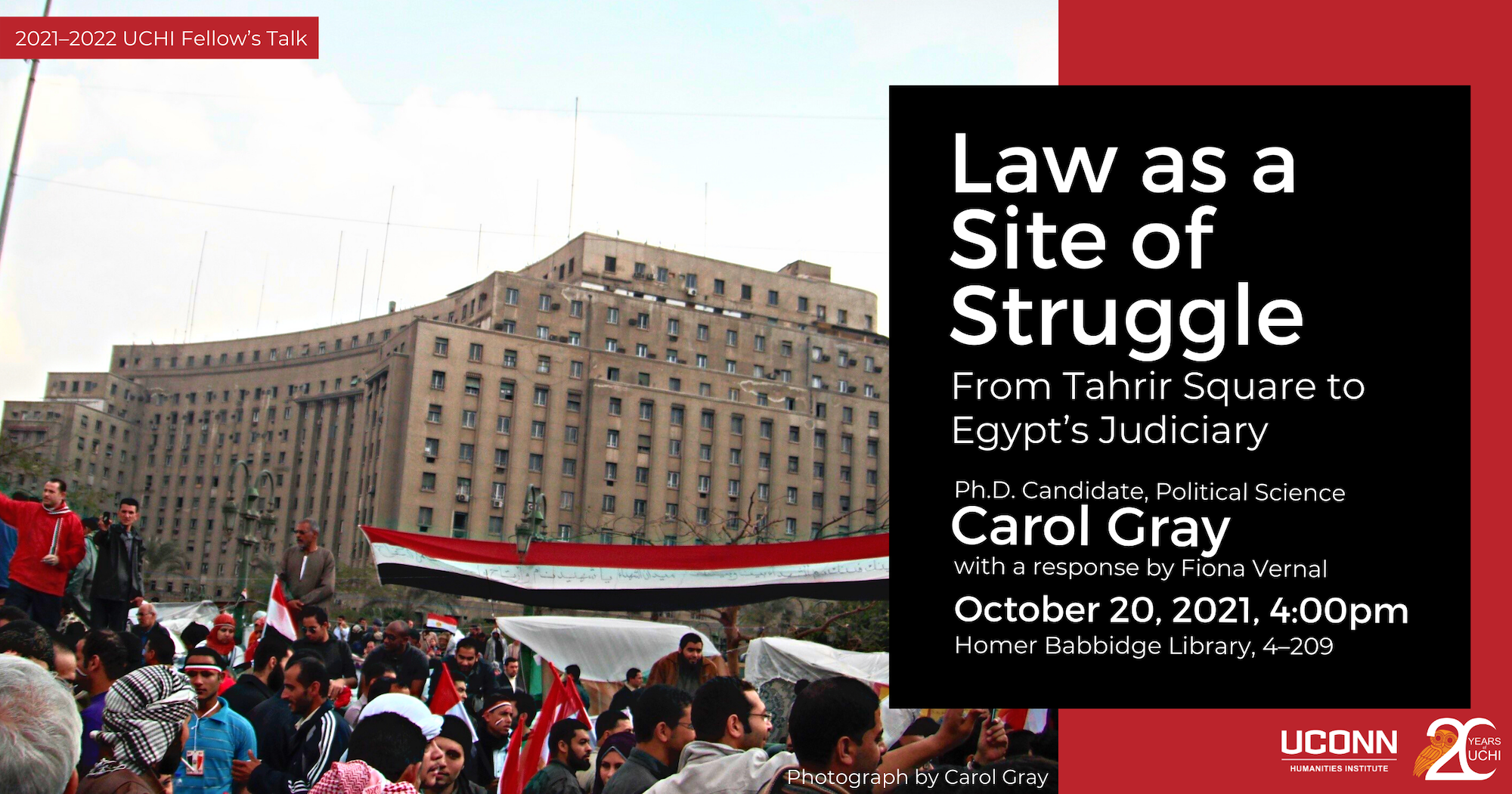
Law as a Site of Struggle: From Tahrir Square to Egypt’s Judiciary
Carol Gray (Ph.D. Candidate, Political Science, UConn)
with a response by Fiona Vernal (History, UConn)
Wednesday, October 20, 2021, 4:00pm. Homer Babbidge Library, 4-209.
Add to Google calendar Add to Office 365 calendar Add to other calendar
The event will also be livestreamed with automated captioning.
To attend virtually, register here
Egypt has weaponized the Rule of Law against civil society, using legal statutes such as the Protest Law, Cyber Law, Terrorist Law, and NGO Registration Law to control and shut down hundreds of human rights organizations and incarcerate many thousands of political prisoners, by latest counts, approximately 60,000 people. Meanwhile, law-based NGOs have brought human rights reform to Egypt’s historically independent judiciary since the late 1990s by litigating human rights violations, often using strategic litigation aimed at striking down repressive unconstitutional laws.
This presentation, divided into three parts, will first offer examples of successful human rights litigation during the first two decades of Egypt’s human rights movement based on interviews conducted in Egypt in the wake of the Arab Spring. These successes hinged on the existence of an independent judiciary. Part two explores how the advocacy of civil society and judges themselves has strengthened the judiciary while, at the same time, certain actions of Egypt’s Executive Branch have severely undermined, and at times punished, the autonomy of judges. Finally, by examining particular cases decided by Egyptian courts post-Arab Spring, part three analyzes how judicial independence and the rule of law in Egypt are not binary concepts. Despite notable court rulings that violated fundamental human rights, there are still glimmers of courage and independence in the judiciary which remains one of the few avenues of possible reform.
Currently a Dissertation Fellow with the UConn Humanities Institute, Carol Gray is a doctoral student in Political Science and a former public defender. She was a Rotary International Ambassadorial Scholar in Egypt from 2010 to February 2011 and a Fulbright Scholar in Montreal from 2013–2014 with Concordia University’s Loyola College for Diversity and Sustainability. Attorney Gray holds a BA from Wesleyan University, a JD from Northeastern University School of Law, an LLM from Georgetown University Law Center and a diploma in International Human Rights Law from American University in Cairo. Her dissertation is based on an oral history she conducted in Egypt after Arab Spring of one of Egypt’s leading human rights organizations. Her research is both interdisciplinary—incorporating law, politics, and human rights—and intersectional—using critical theory to examine issues of race, class, ethnicity and gender. Her most recent publication exploring racial binaries and post-colonial national consciousness based on a play written by Frantz Fanon will be published in December in the CLR James Journal, A Review of Caribbean Ideas.
Fiona Vernal is the director of Engaged, Public, Oral, and Community Histories (EPOCH) and Associate Professor of History and Africana Studies at the University of Connecticut. With extensive teaching and research interests in African, Caribbean, and Diaspora history, her interdisciplinary work explores a wide range of themes from slavery, gender, and the law to the history of housing policies. She holds a BA from Princeton and an MA and PhD from Yale University. She consults on and curates a number of public-facing projects, including the production of a series of radio plays exploring the lives of the people and cultures in the Greater Hartford region, in partnership with Hartford Stage and Connecticut Public Broadcasting. In 2019, she curated the panoramic exhibit showcasing how Hartford became an African American and a Caribbean city: “From Civil Rights to Human Rights: African American, Puerto Rican, and West Indian Housing Struggles in Hartford County, Connecticut, 1940-2019.”
If you require accommodation to attend this event, please contact us at uchi@uconn.edu or by phone (860) 486-9057. We can request ASL interpreting, computer-assisted real time transcription, and other accommodations offered by the Center for Students with Disabilities.
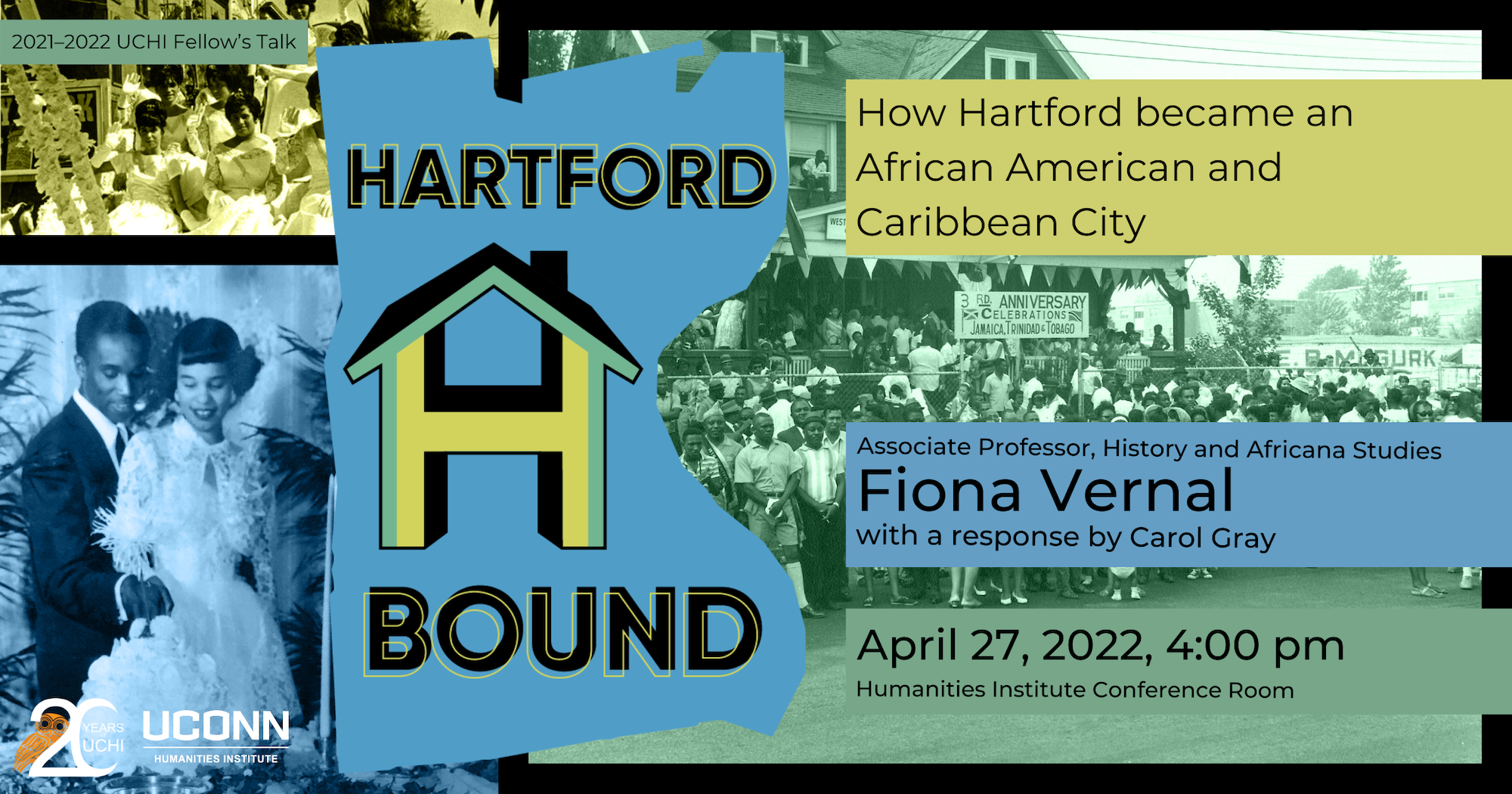

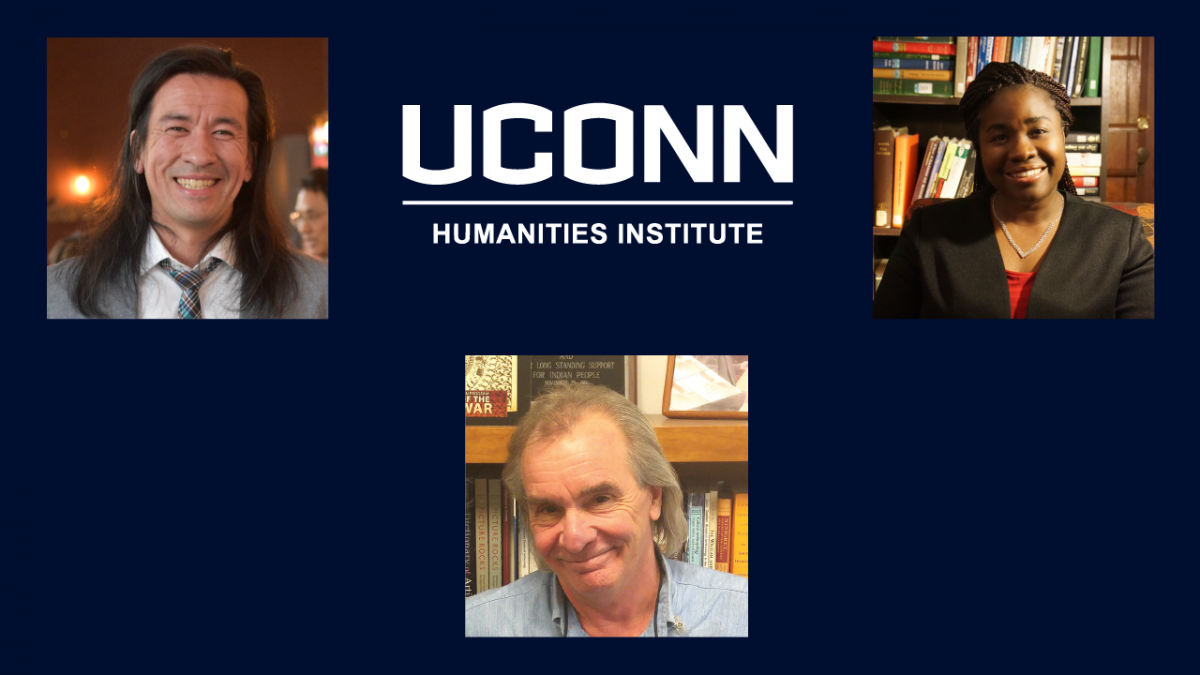
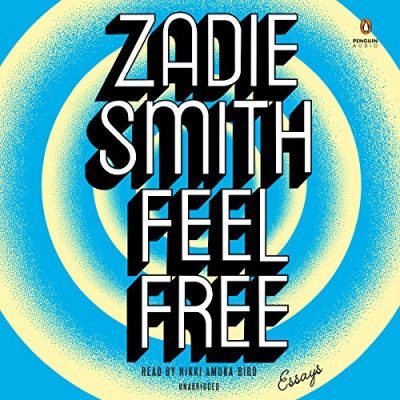 There is only so much Netflix and Hulu one can watch and replaying Contagion and Outbreak are not the best antidote for COVID-19’s many anxieties. I suggest you find refuge in an
There is only so much Netflix and Hulu one can watch and replaying Contagion and Outbreak are not the best antidote for COVID-19’s many anxieties. I suggest you find refuge in an 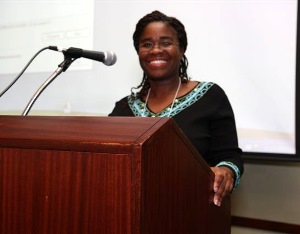 Who is Fiona Vernal?
Who is Fiona Vernal? 
